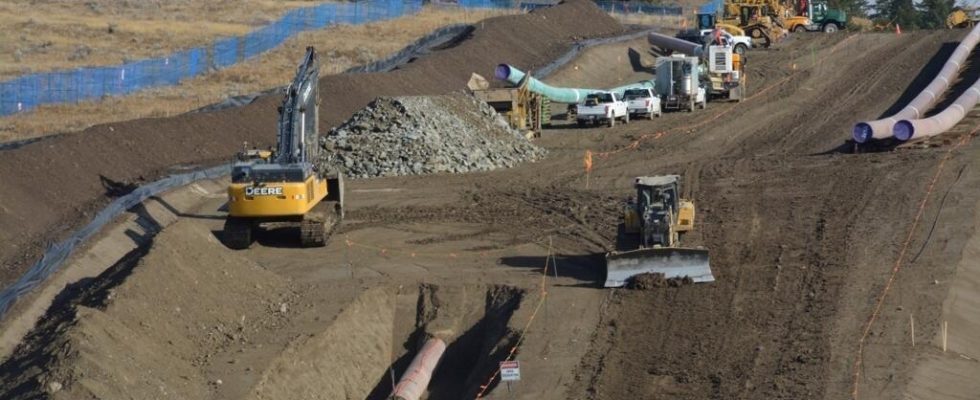The extension of this pipeline has sparked strong opposition in Canada in recent years. Its exploitation poses environmental risks denounced by indigenous people and environmentalists.
2 mins
After years of delays, the Trans Mountain construction site, in Canada, ends. The existing pipeline was built in the 1950s. It stretched 1,150 km between the province of Alberta and British Columbia to the west and transported approximately 300,000 barrels per day.
Twice as big, this new pipeline will transport triple the amount of oil to the Pacific coast. Once operational, it will therefore be able to transport 890,000 barrels per day with additional pumping stations and terminals and a new port complex in Burnaby, near Vancouver. It will make it possible to produce more and also export more, particularly to Asia. Canada is the world’s fourth largest exporter of crude oil.
The project, demanded by Alberta’s powerful oil industry, has been contested, since its beginnings, by environmentalists and indigenous communities in the region. The First Nations people of Canada, who live along the route, are particularly concerned about the risks of oil spills, with the increase in maritime traffic and its consequences on the populations of orcas in the ocean, an endangered species.
Concerns and opposition
For environmental defenders, this pipeline is contradictory with the Canadian government’s commitment to reduce the country’s greenhouse gas emissions by more than 40% by 2030. Canada ranks among the ten largest emitters of GHG emissions on the planet and has one of the highest rates of emissions per capita. However, the climate issue is an issue that concerns Canadians: in recent years, the country has experienced extreme weather events, for example the worst fire season in its history in 2023.
The financial cost of the project is also controversial. It exploded. Technical difficulties, legal challenges, the Covid-19 health crisis, floods and the 2023 fires contributed to the construction delay. It is estimated at more than 34 billion Canadian dollars (23 billion euros), each month of delay having led to cost increases. So, what will be the financial benefits of this big project? Jobs, local projects, municipal, provincial and federal taxes: new revenues that will have to be evaluated. The first winners are obviously the oil companies which will be able to increase their production and sell their oil more expensively, even if the question of toll rights concerning them has not been resolved.
Read alsoCanada: the state still contributes to the expansion of the Trans Mountain pipeline
